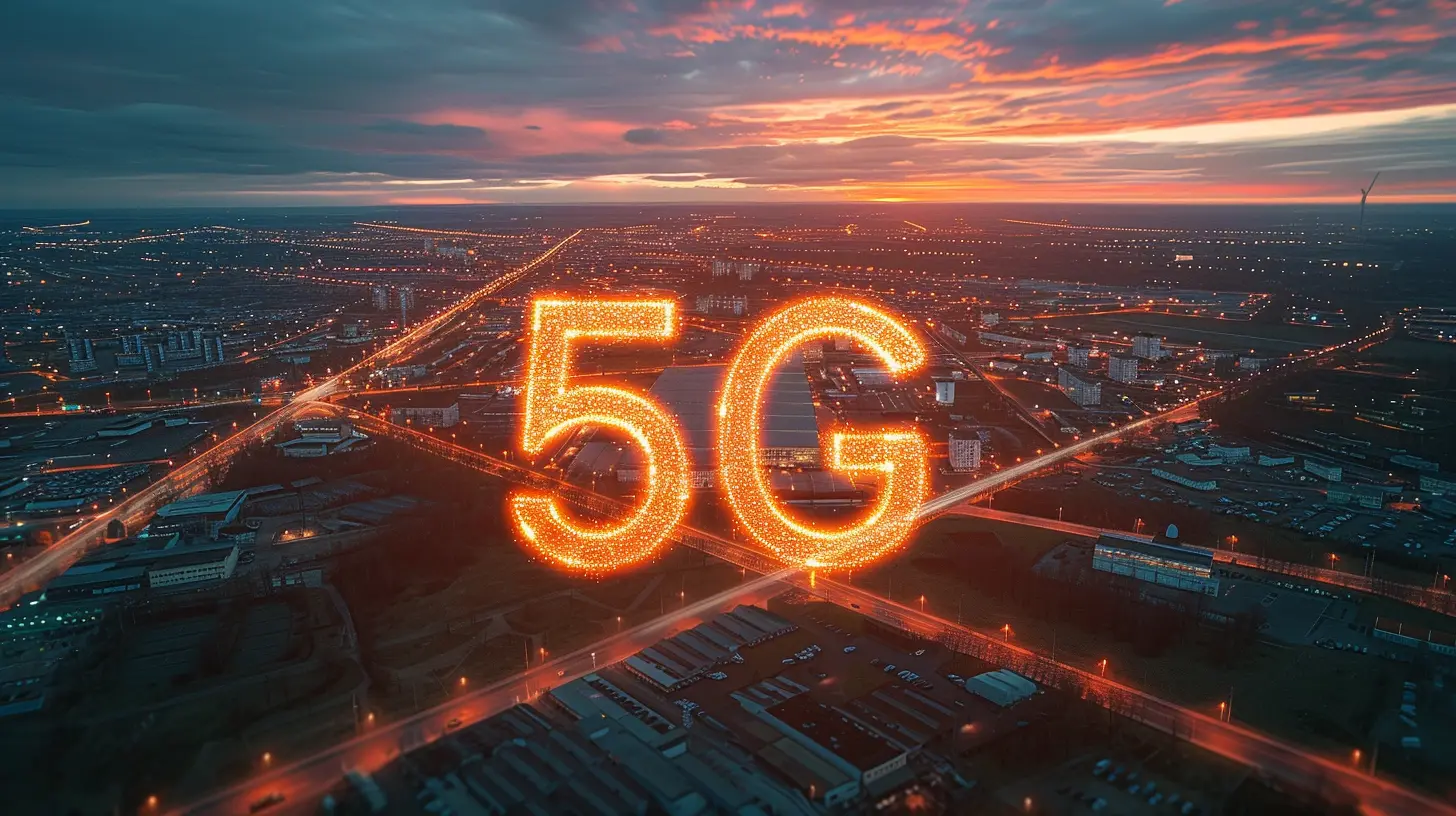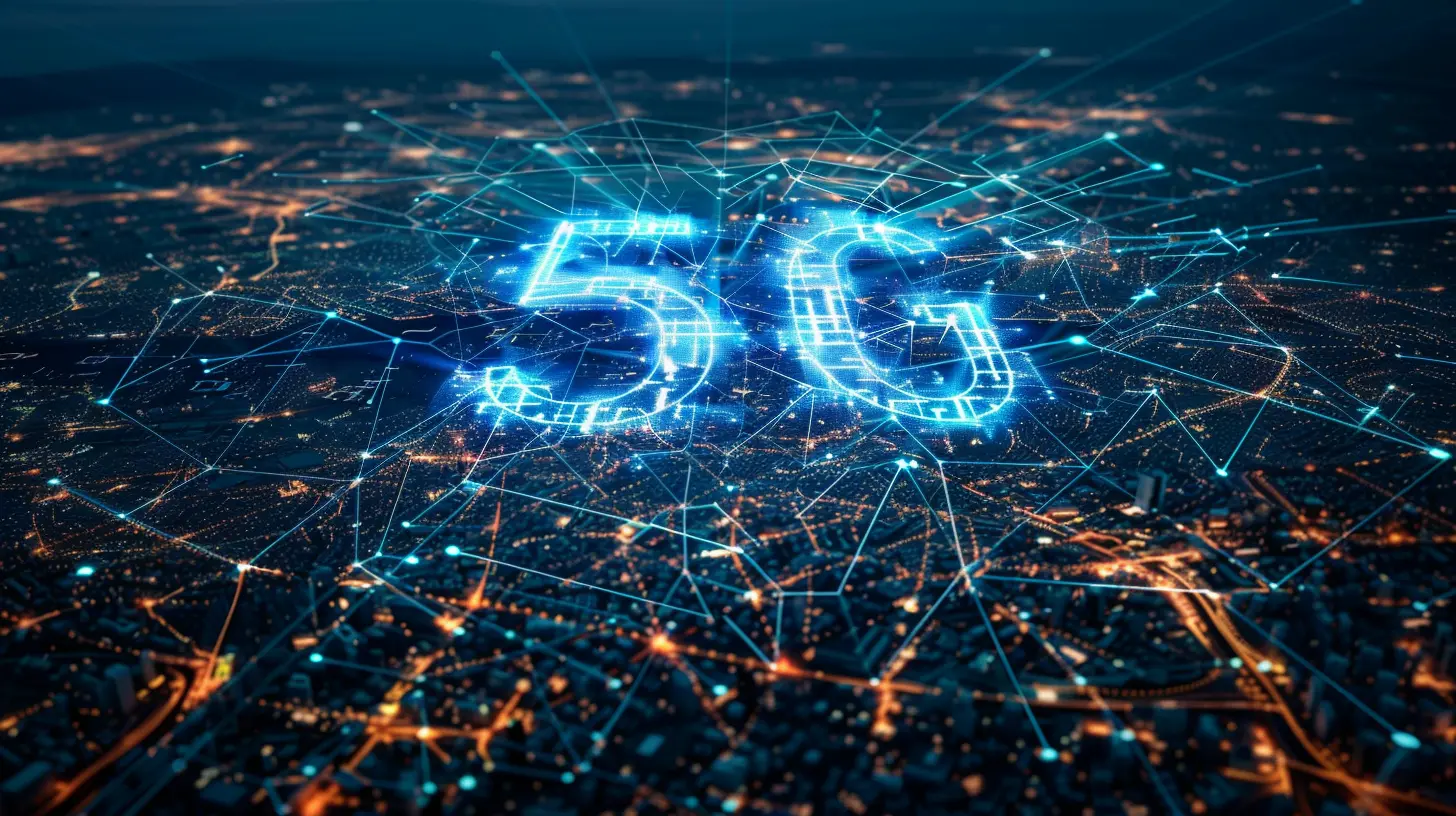G and Its Role in Revolutionizing the Travel Industry
29 June 2025
The travel industry has always been one of the most dynamic sectors in the world. From the invention of the steam engine to the rise of commercial air travel, it’s clear that technology and travel go hand in hand. But now, there's a new player in town: 5G. This next-generation wireless technology is set to completely transform how we travel — whether it’s booking flights, navigating foreign cities, or even the way we experience tourist attractions.
So, how exactly does 5G fit into the travel picture? Let’s dive in and explore how this groundbreaking technology is revolutionizing the travel industry.

What Exactly Is 5G?
Before we get into the nitty-gritty of how 5G is changing travel, let’s quickly break down what 5G actually is.Simply put, 5G is the fifth generation of mobile network technology. It’s faster, more reliable, and can handle a much larger number of connected devices than its predecessor, 4G. While 4G gave us the ability to stream high-definition videos and use apps on the go, 5G takes it to a whole new level, offering blazing-fast internet speeds, ultra-low latency (that’s tech speak for almost no delay), and massive bandwidth capacity.
In other words, 5G is like upgrading from a bicycle to a rocket ship when it comes to mobile networks.

Why Does 5G Matter for Travel?
Okay, so 5G is fast — but what does that have to do with travel? Well, everything! In today’s world, travel is heavily reliant on technology. From booking your flights and accommodation to using maps, translation apps, and ride-sharing services, your entire journey is often tied to how well your connection performs.With 5G, the travel experience is about to become smoother, smarter, and more immersive than ever before. Let me break down the key ways 5G is making a difference.
1. Faster and More Reliable Connectivity
Imagine you’re sitting at an airport gate, trying to download a movie for your long flight. With 4G, this might take a few minutes, and that’s if you’re lucky enough to have a decent connection. With 5G, those few minutes turn into a few seconds. You’ll be able to download entire seasons of your favorite series in the blink of an eye, thanks to 5G’s incredible speed.But it’s not just about downloading movies. Whether you're using a translation app while chatting with locals in a foreign country or checking your flight status at a busy airport, 5G ensures that your connection is fast and reliable. There's no lag when you need it most.
Plus, say goodbye to the frustration of dropped connections in crowded areas like airports, train stations, or tourist hot spots. 5G has the ability to support a higher number of devices at once, meaning you won’t lose service just because everyone around you is connected.
2. Enhanced Airport and Flight Experiences
Airports and airlines are often the most stressful parts of any trip, right? Long security lines, delayed flights, and confusing terminal layouts can easily put a damper on your vacation vibe. But with 5G, you’re in for a smoother ride.First off, 5G enables airports to adopt more smart technologies. Think facial recognition for faster check-ins, smart luggage tags that track your bags in real-time, and even virtual assistants powered by AI to help guide you through the airport.
Even in-flight connectivity is set to improve drastically. While in-flight Wi-Fi has been around for a while, it’s often slow and unreliable. 5G will change that. With faster internet speeds, passengers will be able to stream content, work remotely, and stay connected with friends and family without any buffering or interruptions.
3. Smarter Travel Apps and Services
How many apps do you use while traveling? Probably quite a few — from booking flights and hotels to finding restaurants and navigating unfamiliar cities. 5G will make these apps smarter and more efficient.For example, imagine using a travel app that not only suggests the best places to eat but also provides real-time, personalized recommendations based on your preferences, current location, and the specific time of day. Or how about a map app that offers augmented reality (AR) directions, making it easier to navigate through tricky streets by overlaying arrows and street names directly onto your phone screen in real-time?
5G also opens up the door for more immersive experiences using virtual reality (VR) and augmented reality. Want to get a virtual tour of your hotel room before you book it? Or explore a city’s landmarks in VR before you even leave your house? With 5G, these experiences are literally at your fingertips.
4. Revolutionizing Transportation
Transportation is a major part of any trip, and 5G is set to revolutionize it in ways we couldn’t have imagined before. From driverless cars to smart public transportation systems, 5G will make getting from point A to point B smoother and more efficient.Take self-driving cars, for example. Autonomous vehicles rely on real-time data to make split-second decisions, and 5G’s ultra-low latency means these vehicles can communicate with each other, traffic signals, and road infrastructure in near real-time. This not only makes autonomous cars safer but also helps reduce traffic congestion.
Public transport will also benefit from 5G. Imagine smart buses that adjust their routes in real-time based on traffic conditions or trains that offer lightning-fast Wi-Fi, making long commutes more productive. Even ride-sharing services like Uber will become more efficient, with faster response times and better coordination between drivers and riders.
5. Improved Safety and Security
Safety is always a top priority when traveling, and 5G can help ensure that your trip is as safe as possible.For example, 5G will enable real-time monitoring of tourist attractions, airports, and hotels through connected surveillance systems. This means that if there’s a security threat or an emergency, authorities can respond more quickly and efficiently.
Additionally, smart luggage equipped with 5G connectivity can help prevent the nightmare scenario of lost bags. Travelers will be able to track their luggage in real-time, ensuring that their bags arrive at the same destination they do.
5G also enhances safety when it comes to navigation. Travelers in unfamiliar areas can rely on real-time map updates and enhanced AR directions to avoid getting lost or wandering into unsafe neighborhoods.
6. Personalized and Immersive Travel Experiences
One of the most exciting aspects of 5G is how it can personalize and enhance your travel experiences. With 5G, the travel industry will be able to gather and process huge amounts of data in real-time, allowing for personalized recommendations and services tailored specifically to you.For example, imagine arriving at your hotel, and instead of waiting in line to check-in, you receive a notification on your phone welcoming you by name and directing you to your room. Once in your room, the temperature, lighting, and even the TV are automatically adjusted to your preferences.
Tourist attractions will also become more immersive. Imagine visiting a museum and using AR glasses that bring exhibits to life in front of your eyes, or taking a guided tour through a historic city with real-time translations and interactive information delivered directly to your phone.
Thanks to 5G, travel experiences will no longer be one-size-fits-all. Instead, they’ll be tailored to your individual preferences, making your trips more enjoyable, efficient, and memorable.

The Challenges of 5G in Travel
While 5G’s potential for the travel industry is immense, it’s not without its challenges. For one, the rollout of 5G infrastructure is still in progress. Not all cities or countries have access to 5G yet, meaning that some travelers might not experience its full benefits depending on where they’re going.Additionally, the cost of upgrading to 5G technology can be significant for airports, airlines, and transportation companies. While the long-term benefits will likely outweigh the initial investment, it may take some time before 5G-powered services become the norm across the travel industry.
That said, the future of 5G in travel is incredibly promising, and as the technology continues to evolve, we can expect even more exciting innovations in the years to come.

Conclusion
5G is more than just a faster internet connection — it’s a game-changer for the travel industry. From enhancing airport experiences to improving transportation and making travel apps smarter, 5G is set to revolutionize the way we explore the world. While full-scale adoption may take time, the future of travel is undoubtedly more connected, personalized, and immersive thanks to the power of 5G.So, next time you’re booking a trip or navigating a foreign city, remember that 5G isn’t just about speed — it’s about transforming your entire travel experience.
all images in this post were generated using AI tools
Category:
5g TechnologyAuthor:

Reese McQuillan
Discussion
rate this article
2 comments
Bethany Duke
Great insights! The impact of G on travel innovation is truly remarkable and has the potential to enhance experiences significantly.
November 2, 2025 at 12:48 PM

Reese McQuillan
Thank you! I'm glad you found the insights valuable. G's influence on travel innovation is indeed transformative!
Bethany Brown
This article beautifully illustrates how G is reshaping the travel industry. The innovative technologies and solutions outlined here not only enhance the traveler experience but also promote sustainability and efficiency. It's inspiring to see how technology can connect people and places in meaningful ways, making travel more accessible for everyone.
June 30, 2025 at 10:37 AM

Reese McQuillan
Thank you for your thoughtful comment! I'm glad you found the article inspiring and insightful regarding G's impact on travel.


